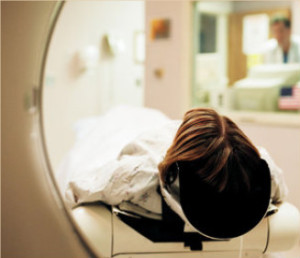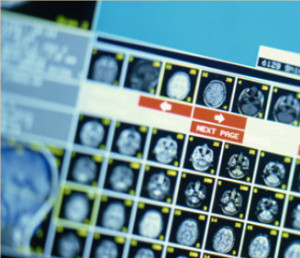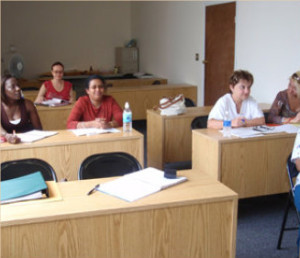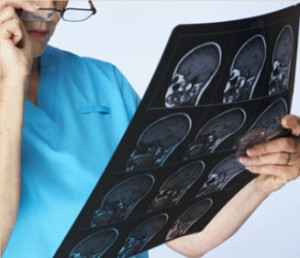40.75 Category A credits
Session 1: Patient Care
Patient Interactions and Management
- Legal and Ethical Principles
- Common terminology (e.g.,* negligence, malpractice)
- legal doctrines (e.g., respondeat superior, res ipsa loquitur)
- Patient’s rights
- Informed consent (written, oral, implied)
- Confidentiality (HIPAA)
- ARRT Standards of Ethics
Infection Control
- Terminology and basic concepts
- Types of asepsis
- Sterile technique
- Pathogens (e.g., fomites, vehicles, vectors)
- Hospital acquired infections
Interpersonal Communications
- Modes of communication
- Verbal, written
- Nonverbal (e.g., eye contact, touching)
- Challenges in communication
- Patient characteristics (e.g., cultural factors, physical or emotional status)
- Strategies to improve understanding
- Patient education
- Explanation of procedure (e.g., risks, benefits)
- Communication with patient during procedure
- Follow-up instructions
- Medical terminology
Patient Assessment, Monitoring and Management
- Routine monitoring
- Vital signs
- Physical signs and symptoms
- Sedated patients
- Claustrophobic patients
- Emergency response
- Reactions to contrast
- Other allergic reactions (e.g., latex)
- Cardiac/respiratory arrest (CPR)
- Physical injury, trauma or RF burn
- Other medical disorders (e.g., seizures, diabetic reactions)
- Life-threatening situations (e.g., quench, projectiles)
Medications used in the MRI suite
- Contrast Administration
- Type of agent (FDA approved)
- Contraindications
- Dose calculation
- Administration routes

Session 2: Safety
1.Introduction
2.Patient education
3.Claustrophobia
4.Quenching
5.RF fields
6.RF antenna effects
7.Specific absorb rate
8.Definite contraindications
9.Pregnancy
10.Projectiles
11.Monitoring
12.MRI Contrast
1.History
2.Electro magnetic spectrum
3.Comparison CT, Nuclear Medicine MRI
4.Advantages vs. disadvantages of MRI
5.Nuclear spin6.Radio Waves
7.Tesla
8.Gauss
9.Diagram of vector
10.Anatomy of the neck and types of fractures
11.Scanning planes
12.Questions and answers
Session 3: Image Production and Physics
– Basic components necessary for MRI to happen
– Hydrogen protons
– Large static magnetic field
– RF signal
1.Magnetic environment
2.Hydrogen
3.Radio frequency
4.MR signal
– FID
– T2*
– T2
– T1
– Mz, Mxy
Session 4: Artifacts, Pulse Sequences, Imaging Options
Artifacts
l. cause and appearance and resolution of artifacts
- Aliasing
- Gibbs, truncation
- Chemical shift
- Magnetic susceptibility
- Radiofrequency, zipper
- Motion and flow
- Partial volume averaging
- Crosstalk
- Cross excitation
- Moiré pattern
- Parallel imaging artifacts
- Compensation for artifacts
II. Quality Control
- Slice thickness
- Spatial resolution
- Contrast resolution
- Signal to noise
- Center frequency
- Transmit gain
- Geometric accuracy
- Equipment handling and inspection (e.g., coils, cables, door seals)
III. Sequence Parameters
- Imaging Parameters
- TR
- TE
- TI
- Number of signal averages (NSA)
- Flip angle (Ernst angle)
- FOV
- Matrix
- Number of slices
- Slice thickness and gap
- Phase and frequency
- Echo train length
- Effective TE
- Bandwidth (transmit, receive)
- Concatenations (number of acquisitions per TR)
IV. Imaging Options
- 2D/3D
- Slice order (sequential, interleaving)
- Spatial saturation pulse
- Gradient moment nulling
- Suppression techniques (e.g., fat, water)
- Physiologic gating and triggering
- In-phase/out-of-phase
- Rectangular FOV
- Anti-aliasing
- Parallel imaging
- Motion correction imaging technique
Session 5: Anatomy and Medical Terminology
- Anatomy of the brain
- Medical Terminology
- CSF Pathways
- Cranial nerves
- Pathology
- Musculoskeletal Anatomy
- Medical Terminology
- Anatomy
- Body Anatomy
- Medical Terminology
- Anatomy
- Vascular Anatomy
- Medical Terminology
- Anatomy
Session 6: Procedures of the Brain
- Imaging of the Brain
- MRA imaging of the Brain
- Magnetic Resonance Venography of the Brain
- Cervical Spine Imaging
- Thoracic Spine Imaging
- Lumbar Spine Imaging
- Magnetic Resonance Angiography of the Carotid Arteries
Session 7: Procedures of the Body and Musculoskeletal System
- Shoulder Imaging
- Elbow Imaging
- Breast Imaging
- Chest Imaging
- Cardiac Imaging
- Brachial Plexus Imaging
- Abdomen and MRA Imaging
- Biliary Imaging (MRCP)
- MRV of the Abdomen
- MRA of the Renal Arteries
- Female Pelvis Imaging
- Pelvis and Hip Imaging
- MRA of the Lower Extremity
- Knee Imaging
- Imaging the Wrist, Thumb, Hand
- Imaging the Ankle
- Imaging the Foot
Session 8:Tests and Discussion
- Patient Care-50 questions-30 minutes
- Review-discussion of each question-30 minutes
- MRI Safety-50 questions-30 minutes
- Review-discussion of each question-30 minutes
- Imaging procedures-50 questions-30 minutes
- Review-discussion of each question-30 minutes
- Artifacts-50 questions-30 minutes
- Review-discussion of each question-30 minutes
Session 9: Anatomy and Pathology Tests
- Written Anatomy and Pathology-2 Hours
- Oral Anatomy test from actual MRI images-2 Hours
Session 10: Review of Previous Sessions
- This is a review of sessions 1,2 and 3. The class goes a full four hours
Session 11: Review of Previous Sessions
- This is a review of sessions 4,5, 6 and 7. The class goes a full four hours
Session 12: Total Course Review
- Session 12 is a total review of all the course work. By the end of session 12, students are very well prepared for every topic on the MRI registry examination
